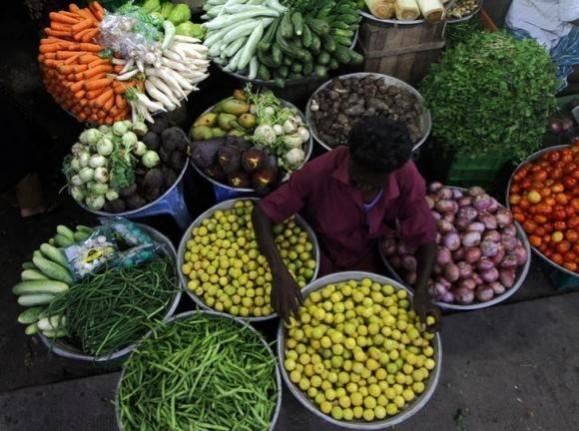
India's consumer price index (CPI) rose to a five-month high in August driven by rising food prices, suggesting that the Reserve Bank of India (RBI) will likely keep interest rates on hold in the monetary policy meeting next month.
India's CPI surged to 3.36 percent in August from 2.36 percent in July. That was above market and economists' expectations of 3.2 percent. It is the highest inflation rate since March.
The RBI last month had cut interest rate by 25 basis points to 6 percent, keeping its policy stance at neutral in response to record low inflation of 1.54 percent in June.
"We expect the RBI to maintain status quo on policy rates at the October monetary policy meet. Retail inflation is likely to be pressured in the coming months," said Kavita Chacko, senior economist at Care Ratings, told IBTimes India.
However, the central bank expects inflation at 2-3.5 percent in the first half of the fiscal year (April-September 2017) and 3.5-4.5 percent in the second half (October 2017 to March 2018).
Indian consumers have cut down on spending, and businesses too have lost momentum after Prime Minister Narendra Modi introduced big economic reforms such as the demonetisation drive last year and the implementation of the new Goods and Services Tax (GST) regime on July 1.
India's growth unexpectedly slowed down to 5.7 percent in the June quarter — the slowest pace in three years — highlighting the disruptions caused by the rollout of the new tax system and the currency shock.
However, economic growth is expected to pick up in the coming quarters and India might get its "fastest-growing major economy" title back. In fact, it will likely grow 7.3 percent in 2017-18, suggested a recent Reuters poll.

India's industrial production increased 1.2 percent year-on-year in July, which was in line with the market consensus. Manufacturing production also grew slightly by 0.1 percent after a 0.5 percent contraction in June due to the economic reforms.
Additionally, a very recent Nomura research report also said India's gross domes product (GDP) will be around 7.1 percent this fiscal, after a pick-up in industrial production, and activities in the industrial sector will gain momentum ahead of the festive season.
Also, as the economy recovers from the cash shock last year, growth is projected to remain strong. The increase in public wages and pensions will likely push consumption up.
However, surging bad corporate loans are a major concern that the economy needs to address as soon as possible.








